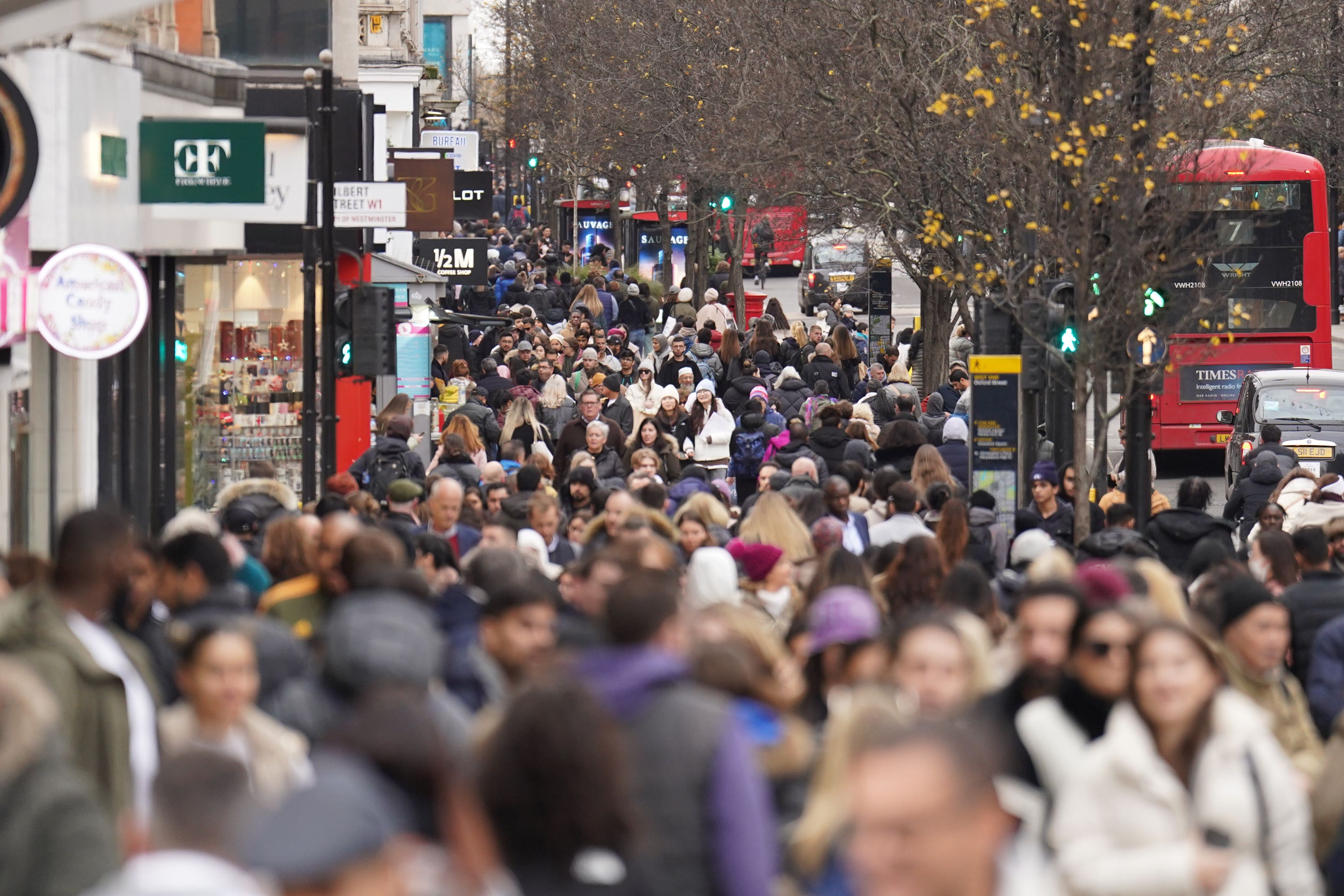As sales beat expectations, is the High Street waking up at last?
Official figures were unexpectedly good and consumer confidence is rising, writes James Moore. With wages outpointing prices, a new government may get a boost from the previously moribund consumer economy


Is the British High Street finally emerging from its extended hibernation? Official figures showed sales volumes – ie the quantity of items bought – were up 2.9 per cent in May after a fall of 1.8 per cent in April.
That figure was comfortably above economists’ expectations (1.5 per cent according to a Reuters poll). More importantly, they also rose by 1 per cent over three months and 1.2 per cent year on year (excluding fuel).
As ever, we need a bit of context before we get ahead of ourselves. The year-on-year figure is the first positive for three months, and the British Retail Consortium pointed out that sales “still remain below their 2021 levels”.
You may recall that the recent jobs data from the Office for National Statistics (ONS) showed that the retail sector has been shedding them. The four-quarter average workforce dropped below 3 million. In 2019 – so before the pandemic hit – it was at 3.1 million.
But it does seem that consumers were more willing to venture out thanks to some warmer weather after staying home during a sodden April – although at more than twice the usual amount, the rain didn’t exactly stay away in May.
Kris Hamer, director of insight at the British Retail Consortium, noted that larger retailers outperformed smaller ones, while clothing and footwear in particular benefitted from the change in temperatures. But furniture and household goods also did well in a recovery that was broad-based.
“Retailers hope that the recent start of Euro 2024 should further improve spending in snacks, alcohol, and TVs for June’s figures – and if England can win their final game and move forward to the Round of 16, it might give consumer confidence the boost it needs,” Hamer said.
It should be said that Friday’s economic data was not all positive. The closely watched Purchasing Managers Index (PMI) composite declined to 51.7 in June from 53 in May. Anything over 50 still represents growth and manufacturing notably picked up. However, this was offset by sluggishness in the dominant services sector.
I would also suggest that pinning hopes on England would be most unwise after the team’s dismal display against Denmark. Scotland still have a fighting chance of reaching the last 16 after a draw against Switzerland, but the retail sector would be better off hoping the weather keeps up its improved performance than relying on the football to deliver for them.
There are nonetheless grounds for some modest optimism, which has been very hard to find after a protracted spell of poor figures. Wages have been outpointing inflation for some time now, which is good news for consumers. This may be playing into signs of improved confidence. The regular index published by market researchers GfK hit its highest level since November 2021 after posting a three-point increase. At -14, it is still in negative territory, but broker Shore Capital said the data “follows our narrative that better times likely lie ahead for consumer discretionary goods businesses”.
Notwithstanding the service sector’s overall woes – the current three-month quarter was widely expected to be slower than the first for the economy as a whole – it does seem that there are genuine grounds for some modest optimism on the High Street and about the consumer.
“There do seem to be tentative signs that the consumer economy is accelerating,” said broker Investec. “The minutes from Thursday’s Bank of England meeting noted that Bank of England agents had reported a pickup in consumer demand in Q2 this year.”
So it seems quite possible that an incoming government will enjoy the benefits of a gentle tailwind from the economy, particularly if the signs of life from the consumer firm up and retailers are able to build on May’s solid numbers.
An interest rate cut would, of course, add some real momentum to this. While I continue to be sceptical about the chances of an early one, as I wrote earlier this week, we will likely see one before Christmas at the latest. Whenever it does come, it will represent a real gift to this embattled sector.
Join our commenting forum
Join thought-provoking conversations, follow other Independent readers and see their replies
Comments
Bookmark popover
Removed from bookmarks